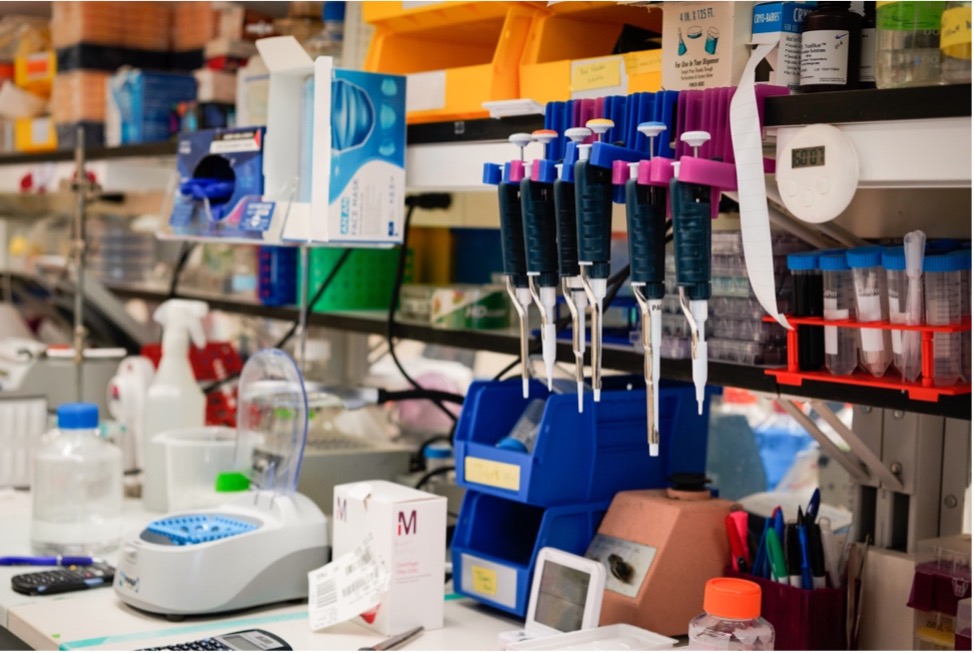By Alcina Alex Rodrigues

Rutgers iJOBS program recently hosted an incredibly insightful panel discussion. The event featured alumni who have successfully transitioned into industrial roles while continuing hands-on bench work. It was both eye-opening and reassuring to hear from scientists who have maintained their connection to experimental science, proving that moving into industry does not necessarily mean giving up the pipette! These professionals are engaged in cutting-edge research, contributing to innovation, healthcare, and making a tangible impact on the world.
Meet the Panelists
- Dr. Sayantani Goswami Chatterjee earned her PhD in Biological Sciences from Rutgers University in 2021. She began her career as a postdoctoral fellow at Colgate-Palmolive and now works there as a Research Scientist, focusing on product claim support, experimental design, and toxicity screening.
- Dr. Victor Tan, a Rutgers PhD graduate, is now a Senior Scientist at Vertex Pharmaceuticals in the Gene Editing and Cell Therapy department, where he conducts gene editing research.
- Dr. Ruchi Yadav completed her PhD in Biochemistry in 2024 at Rutgers. She is currently a Senior Scientist at Merck in the Biologics Analytical R&D department, contributing to drug development.
- Dr. Samuel Adeleye received his PhD in Microbiology and Molecular Genetics in 2024. He now serves as an Advisor in Biotherapeutics at Eli Lilly, where he designs drug conjugates for targeted therapies and is involved in protein purification and characterization.
- Dr. Jay Shah, after completing his PhD at Rutgers on nanoparticles and in vivo imaging, continued postdoctoral training in the same lab to commercialize the technique. He now works as Scientist I at Alexion, focusing on downstream process development and high-throughput biologics purification.
Key Takeaways from the Panel
The panelists shared their experience navigating the job market, the skill sets they rely on daily, and valuable advice for current graduate students. Many credited the iJOBs program for helping them understand the industry landscape and prepare for the transition.
Top advice:
Start networking and conducting informational interviews early— don’t wait until you are actively job hunting. An informational interview is an informal conversation with someone working in a career field that interests you. The main purpose is to gather important information about the career, the organization, and to get professional tips on how to prepare for interviews. It’s also a great way to expand your network. LinkedIn and university alumni networks are excellent resources for finding people to connect with for an informational interview. While industry roles may involve meetings, cross-functional collaboration, data analysis, and report writing, most panelists emphasized that they still spend a significant amount of time at the bench.
As Dr. Chatterjee pointed out, the pace in industry is faster than in academia, and expectations differ. In graduate school, you typically own your project. In contrast, industry work is team-based—your work is one piece of a larger puzzle.
Dr. Tan highlighted a unique feature of Vortex called “gigs”, which are six-month rotational assignments in different departments. These opportunities allow employees to explore other areas and find the right fit based on interests and team availability.
The panel emphasized the importance of being flexible, collaborative, and resilient. In the industry, scientists often work on multiple projects throughout their careers. Due to evolving business priorities, market demand, or organizational restructuring, it is common to transition from one project to another. These shifts may happen unexpectedly and require quick adaptation to new teams and technologies.
Job Search Strategies
The job search process can feel overwhelming, but the panelist offered several helpful strategies.
- Customize your resume to each job description to get noticed by the application tracking system (ATS) and hiring managers. This includes identifying key elements of job description, using keywords strategically, and tailoring a personal statement.
- Request the internal job posting link or job ID from the employee referring you
- Consider Contract Research Organizations (CROs); they are often more open to hiring recent graduates.
- Be patient—it may take several months to land an interview or job offer.
- Dr. Adeleye mentioned that his extroverted nature and commitment to networking helped him secure his position.
Q&A Highlights
Some of the questions from the audience included:
- How long is the training period? It depends on the company. One panelist mentioned having just one week of training.
- How much time is spent at the bench? A significant portion, although other responsibilities are also part of the role.
- What is the hiring process like? Typically, a recruiter screens your resume, followed by a phone interview. If successful, the candidate proceeds to interviews with the hiring manager and possibly the team, either via Zoom or in person.
- What skills are most important? According to Dr. Yadav, the same skills you develop during your PhD: technical expertise, communication (both verbal and written), teamwork, and project/time management. Panelists also stressed that cultural fit and a willingness to collaborate are just as important as technical knowledge.
At last, Dr. Shah’s closing words resonated deeply:
“Focus on the relationships rather than the transaction. Nothing is standardized- take what fits you and know your audience.”
Final Thoughts
Hearing from these alumni was both inspiring and comforting. Their stories highlighted that scientific training can directly contribute to life-changing innovations. Whether you plan to stay at the bench or explore new directions, the message was clear:
There is a place in industry for passionate, skilled scientists who are ready to adapt, collaborate, and grow!!
This article was edited by Junior Editor E. Beyza Guven and Senior Editor Joycelyn Radeny.